Solar PPA: Everything you need to know
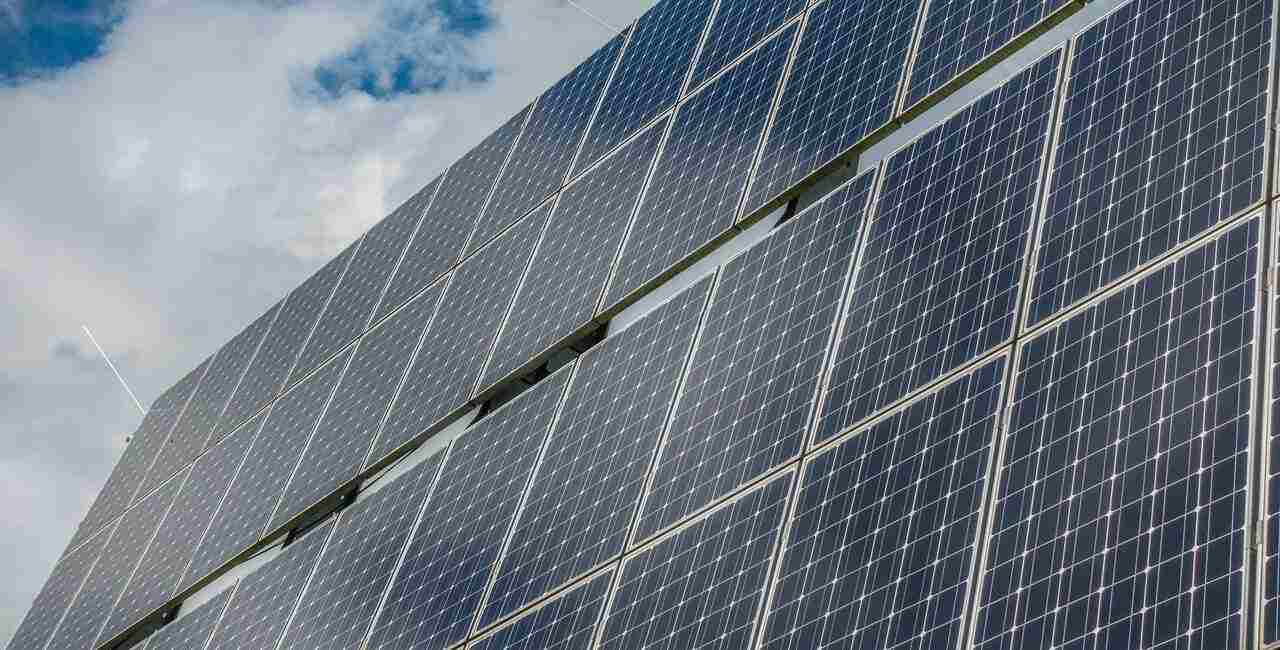
While solar power is undoubtedly growing in adoption rates for commercial and industrial facilities, not all businesses can afford to install a solar panel system outright. That is why there are solar financing options available where you don’t own the solar energy installation itself, but still have full access to the solar electricity being generated.
So, in this article, we will deep dive into a solar Power Purchase Agreement (PPA).
What is a Power Purchase Agreement India?
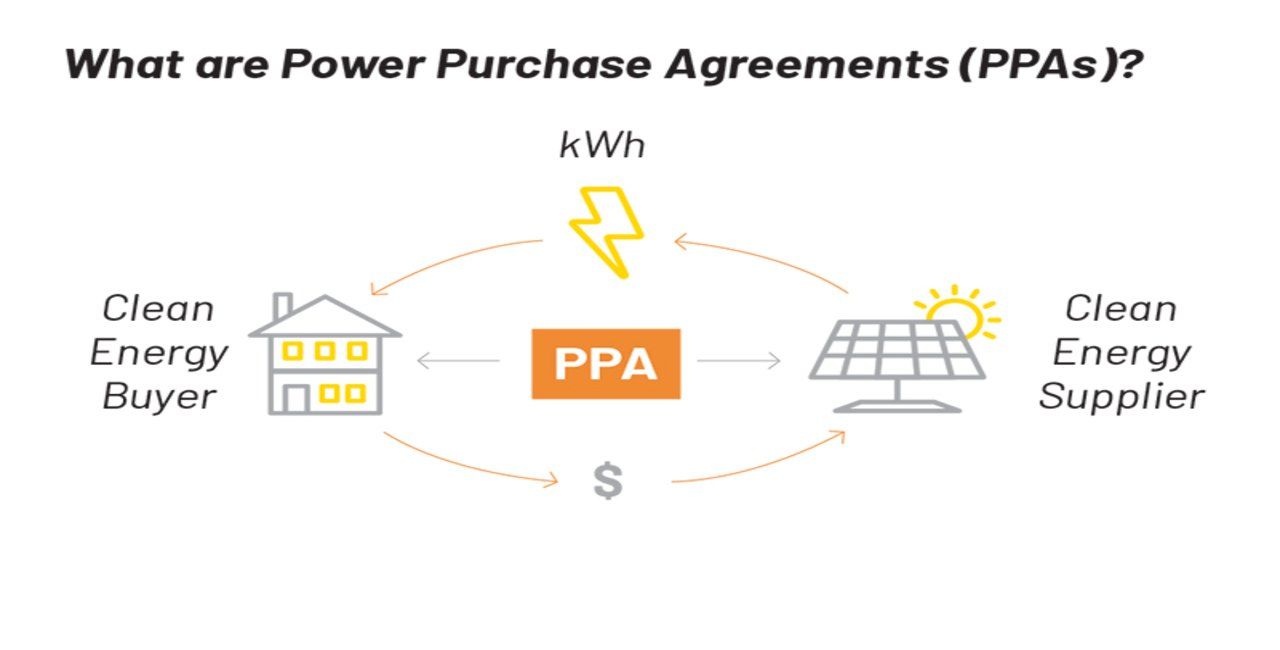
A contractual agreement between energy buyers and sellers is termed as power purchase agreement which is short written as PPA. Both the buyers and sellers come together and make an agreement to buy and sell an amount of energy that will be generated by a renewable asset. Power purchase agreements are usually signed for a long-term period of time between 10-20 years.
Types of power purchase agreements
Physical PPAs
Since the origin of the corporate renewable energy market, Physical Power Purchase Agreements have been leading. It is a traditional option; a PPPA has a long-term agreement between a corporate customer, an energy supplier, and a renewable electricity generator. The role and responsibility of the energy supplier are to build, own and maintain the project while selling electricity back to the customer at a fixed rate per unit. The rate is measured in dollars per megawatt-hour. This price is estimated to be typically lower than the local utility’s.
Virtual PPAs
VPPAs are known as Virtual Power Purchase Agreements, which are the latest in the market and have attained popularity in the recent few years. It is said that VPPAs are the fastest-growing funding structure. This type of PPA permits smaller, inexperienced buyers. This agreement helps in cooperating and developing the goals of corporations in order to meet the sustainability target and facilitate de-carbonization across the grid.
What is a solar purchase power agreement?
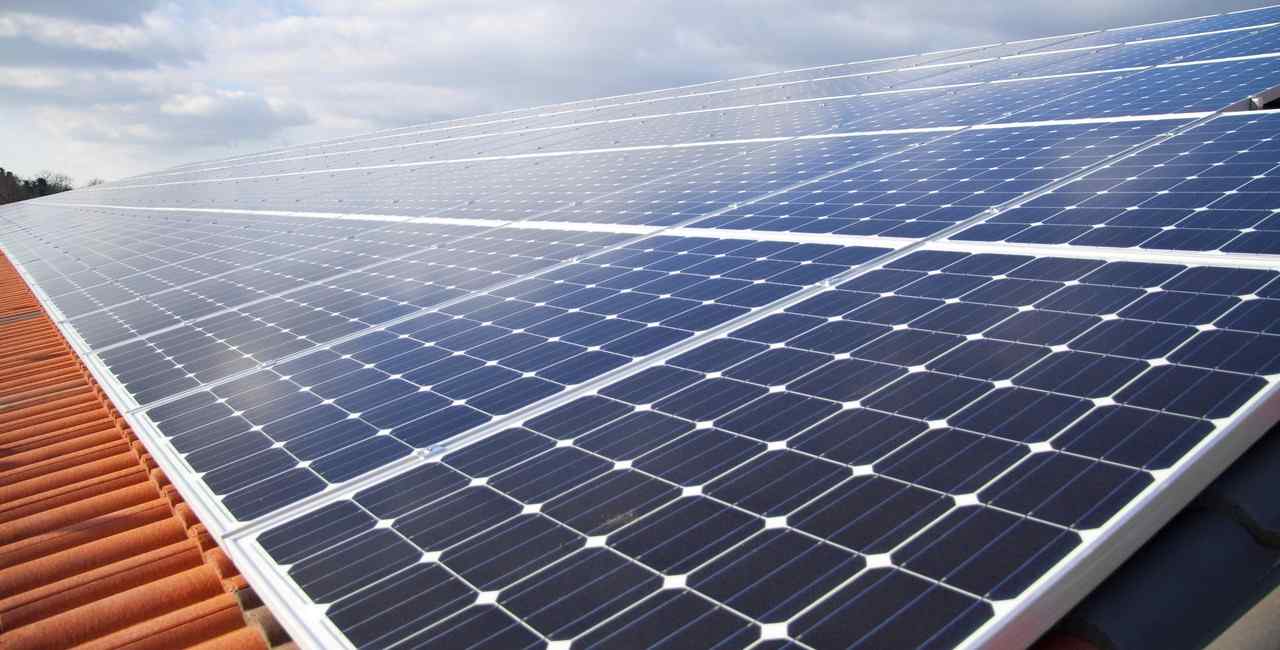
A situation is when a developer pays a certain amount of money to install a solar energy system on an owner’s property and sells the solar energy to the landlord of a house at a fixed rate. A big task is to get solar panels on your property. You are probably responsible for selecting the equipment, finding a builder, and organizing any associated tax documentation in order to attain the federal tax incentives. There might be a better way to perform the same.
A solar power purchase agreement can also be written as SPPA or a PPA. SPPA is an alternative path to getting solar energy for your home. You can make better utilization of solar energy without installing the setting up of the solar system at your own place.
PPAs let you pass the heavy lifting to a developer as there are various advantages of solar power that include less expensive green electricity rates and better utilization of a renewable resource to offset pollution. All the details that are relevant for solar power, whether it belongs to installation, permitting, design, or even handling filing taxes to receive federal and state incentives, are operated by a partner who is hired.
Have you ever wondered about a car that can be driven anywhere you want but does not require filling the gas, washing it, or doing maintenance? It’s all about paying for actual usage with a PPA, but with a lease, you have consistent monthly payments.
Solar PPA vs Lease
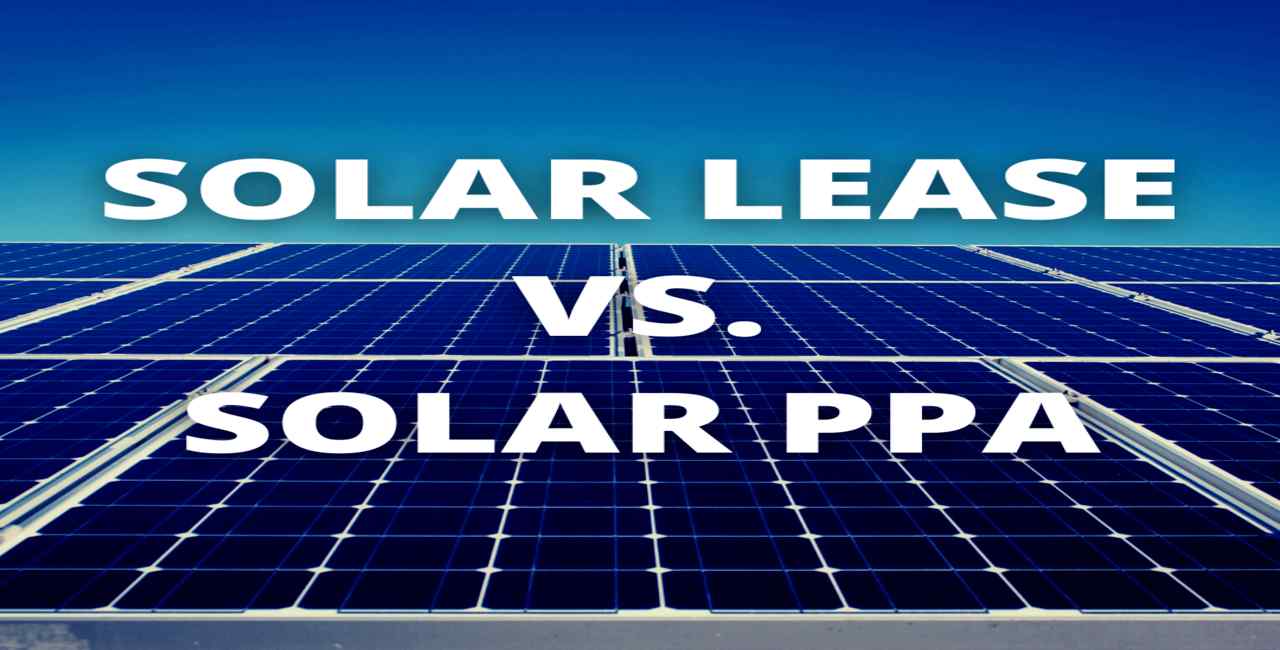
The major consideration is made upon working on a decision made by the homeowner or renter regarding how to pay for the solar system and whether to own it or not. Owing the property can typically give you the best financial incentives, like a federal solar tax credit.
Of course, owning is not an option for all. So, those consumers for whom the solar industry is the second option have the property of availing of the benefits of solar energy. On the whole, the other two options can be broken down into either leasing or getting a power purchase agreement.
However, among the two respective options, there are various ways that reduce the cost. For instance, there might be third-party fees, down payments, monthly payments, lease-to-own, and net-metering benefits. In short, go through the entire details of any agreement and make sure that you understand all costs and advantages of your solar plan before signing on the dotted line.
We can also consider it as leasing or using a PPA that brings another party together. While making a comparison with a situation most of us have gone through, let’s consider purchasing a car. All the possible scenarios can be like this:
• You pay for the car, and then you spend your money purchasing the gas and other future maintenance costs. That’s like owning your solar system.
• Buy your own car, but you get a loan and pay it back in installments. That’s just similar to financing your system.
• The monthly payments are made for your car, with the understanding that you will return it after a few years to get the latest model. That’s like leasing your solar system.
• At last, it might be possible that someone else is buying a car for you, but you can make the utilization of the same after the installation of the gas or refilling the gas the time you make a drive. This situation is more like a financial PPA.
Working on Solar Power Purchase Agreements
The simplest way to describe a Purchase Power Agreement (or PPA) is: A PPA is where the homeowner/landowner agrees to permit a developer to place solar panels on your property at little to no cost. After that, the owner of the land buys the power generated from the system BACK from the developer at a rate that is lower than what the electric utility company is offering.
In exchange for your available rooftop or ground space, you will receive a lower energy bill every month, and in the installation part, the owner does not have any responsibility over it also to the maintenance or design of the solar energy system.
The lower rate you receive from the developer/owner of the system installed on your property enables you to offset your energy costs by decreasing the amount you rely on the grid for traditional energy and reducing the cost of the solar energy you are paying for using the solar panel design software.
Pros And Cons Of Solar Purchase Power Agreements
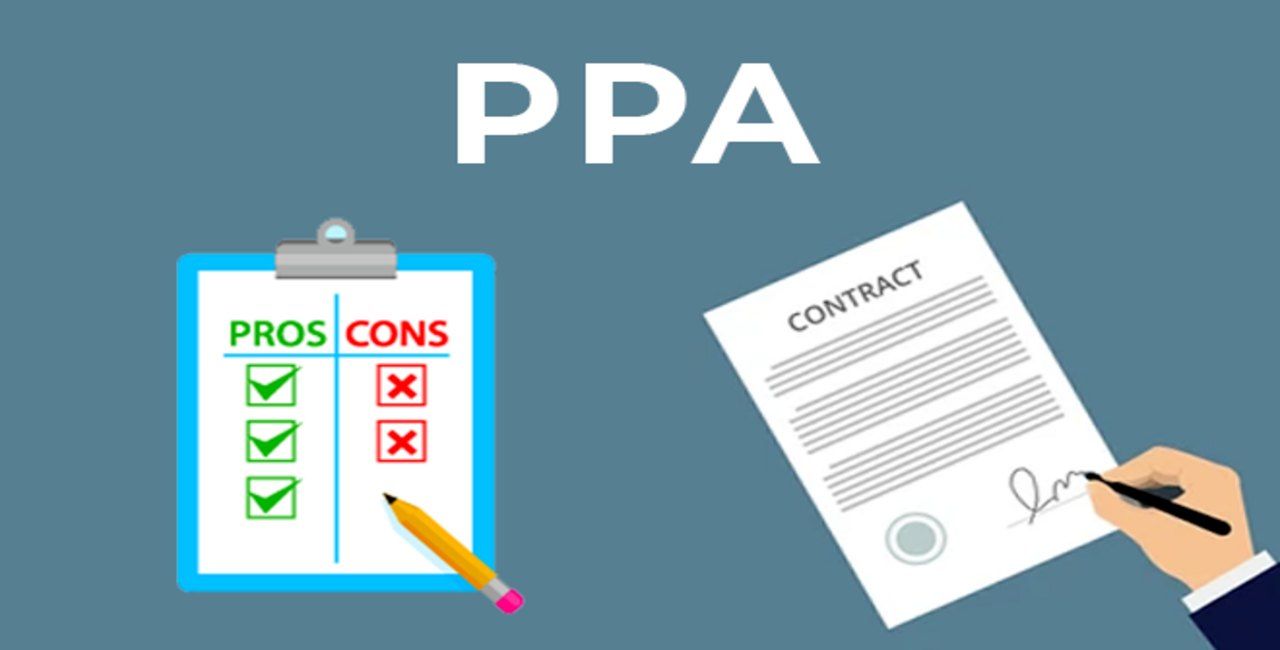
On a short-term basis, PPAs are better for the host organization, but they are not that beneficiary in the long term if we plan to own the solar panel. Here are some of the pros and cons of PPAs.
Solar PPA India advantages
One of the major advantages of PPAs is that the host organization is not required to make a purchase of the equipment and finance the solar PV installation. Organizations can take the benefits of cost savings on electricity bills and even mitigate the impacts of future utility rate hikes. The organization is not responsible for solar PV system maintenance. Along with this, the maintenance part is quite low, especially in the case of reputed companies. The host organization gets the sustainability benefits and positive publicity that are associated with utilizing solar electricity.
Solar PPA problems
Although PPA solar panels attract organizations as they are suitable for the short-term, they are often less appealing for the long term. This is the reason why PPAs result in lower long-term savings as compared to owning the system. If capital or low-interest financing is available and the organization can take the cake slice of the tax incentives, purchasing the solar system might be more profitable.
The host organization cannot take advantage of the federal tax credit which is associated with the solar system. If a large solar system is installed, this tax credit can be quite valuable. However, there are only a few organizations that are qualified for tax credits, including non-profit organizations or companies with a small tax appetite.
The value of the property does not take a hike because the host organization doesn’t own the solar system at all.
Solar ppa price per kwh
The Independent power producers can sell the excess generated by solar panels to the utility. The utility and the consumers sign a Power purchase Agreement during the installation on the solar plant. In India, the PPA rate for rooftop models is 3.57 Rs/ unit and for ground-mounted models is around Rs. 2.2/ unit.
Other Options For Solar PPA finance
There are numerous techniques to finance a solar system other than using a PPA for both residential and commercial applications.
Renting Solar Panels
Some of the solar shoppers are Arizona, California, Connecticut, Massachusetts, New Jersey, and New Mexico; only these places can take the benefits of the program. They have three categories from which a choice is made: a 3.8 kW, 7.2 kW, and 11.4 kW solar system that costs $50, $100, and $150 a month, respectively. The program consists of a fee for cancellation.
Solar Loans
There are a large number of solar installers who offer solar loans to their customers. These types of loans are specifically designed for installing renewable energy projects in either residential or commercial applications. The rates and structure of the program may vary from lender to lender. Relatively, the interest rate is low but fixed. The fees of the loan are high and are payable by the installer. In addition to this, the basic requirement of a credit score must meet between the individual and the business.
Another option for residential systems is a home equity line of credit. Here, the home itself is used as collateral for the loan. In this category, the interest rate is fixed for some duration. As directed by the IRS, if the loan is utilized to buy, build, or substantially improve the taxpayer’s home that secures the loan, then the interest is tax-deductible. The minimum credit score of the homeowner must be fulfilled and have ample income or savings to repay the loan.
Another option that comes up in the strategy is to hire a business loan. These types of loans have a fixed interest rate. People can utilize an asset as collateral, for example, real estate or equipment. Lenders look at the credit score of the business and owner and the company financials while approving the loan.
Community Solar Farms
There are different states that have their own laws that support community solar development. In such states, joining a community solar farm is an appealing option for some residential and commercial solar shoppers.
There are varieties of models for community solar: The first one is buying in, and the second is the subscription model.
The former can ask for an upfront investment, while the latter is a short-term commitment with monthly payments.
Bottom-up
A PPA is a contractual agreement to purchase an amount of energy at an agreed price, for a certain time, in advance of producing the energy.
PPAs are now common in renewable energy businesses due to the decline of government subsidies. Without subsidies, there is a lack of financial security for lending institutions, such as banks, to invest in renewables projects. As a result, lenders require a new way to secure their investment. A PPA can prove that the concerned renewable asset has already found a long-term buyer at a fixed price.

